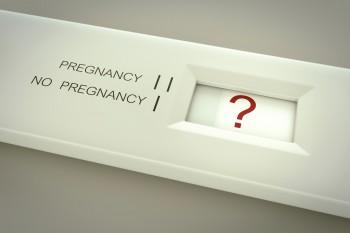Vitamin D is Vital During Pregnancy

Unless you are spending hours outside every day, your Vitamin D levels are probably not in optimal range. (If you've spent the last year inside, your levels are definitely low.) Your body needs this vitamin for a multitude of reasons, but during pregnancy, research is showing it may be a vital part of a healthy delivery and baby.
MUSC (Medical University of South Carolina) has long been the go-to for all things Vitamin D research related. They released information possibly linking low Vitamin D levels to preterm birth. With previous research possibly linking the same low levels of Vitamin D to increased risk of autism and multiple sclerosis, it's time for pregnant women to start paying attention!
It has been discovered that a Vitamin D deficiency while pregnant is linked to altered brain development to the fetus. Authors of the research stated, "It is feasible that a safe, cheap and publicly accessible vitamin D supplement in at-risk groups may reduce the prevalence of this risk factor. Just as prenatal folate supplementation has reduced the incidence of spina bifida, we speculate that prenatal vitamin D supplementation may reduce the incidence of autism."_x009d_
The latest research is linking high Vitamin D levels to the following:
- Preventing gestational diabetes
- Lowering the risk of preeclampsia
- Reducing the risk of asthma
Gestational Diabetes and Preeclampsia are both tied to non-ideal birth stories, most of the time babies are born before they are ready and with many problems crossing into the newborn (or longer) period. While the sun provides Vitamin D, as does a typical prenatal vitamin, research is showing that it is no where near enough. A common prenatal vitamin provides 400 IU/day, but to reach the desired 40-60+ ng/ml within the blood of the mother, 4,000 IU/day is recommended!
Foods rich in vitamin D include:
- Cod liver oil (1 tablespoon contains 1,360 IU)
- Swordfish (3 ounces, cooked contains 566 IU)
- Sockeye salmon (3 ounces cooked contains 447 IU)
- Tuna fish canned in water and drained (3 ounces contains 154 IU)
- Fortified milk (1 cup contains 115-124 IU)
If you cannot meet the recommended dosage, you can consider a high-quality supplement.
Published studies are all concluding the same thing: "Vitamin D supplementation of 4,000 IU/day for pregnant women was safe and most effective in achieving sufficiency in all women and their neonates regardless of race while the current estimated average requirement was comparatively ineffective at achieving adequate circulating 25(OH)D, especially in African Americans."
"Current evidence supports the concept that circulating 25-hydroxyvitamin D should be 40-60 ng/ml (100-150 nmol) during pregnancy and a daily intake of 4000 IU vitamin D3 is required to attain that circulating level."

Why Risk It? Grab Some Vitamin D!
If you are currently pregnant, talk to your midwife or birth team about this research. The possible risks of not adding Vitamin D into your daily routine are not pleasant. When we learn about new ways to stay healthy and help create a healthier environment to grow our babies, we adapt, educate ourselves and progress! Is Vitamin D the cure all? Probably not, but is it possible that this natural vitamin could potentially be a key to a bigger picture? Maybe!







